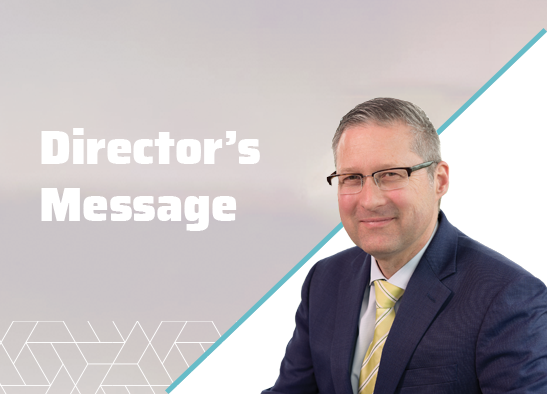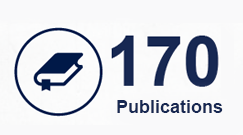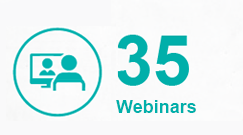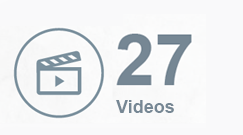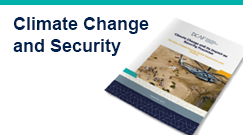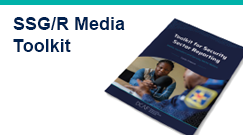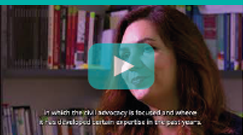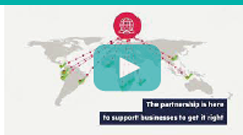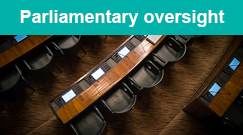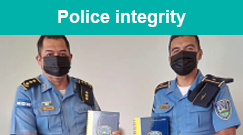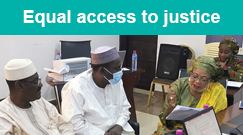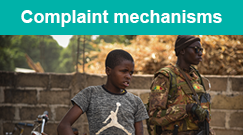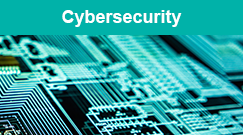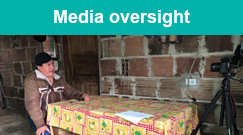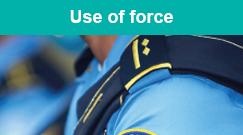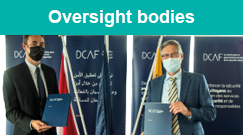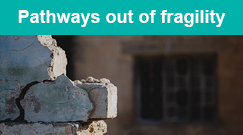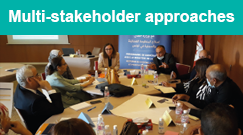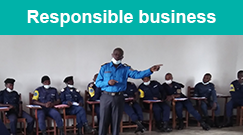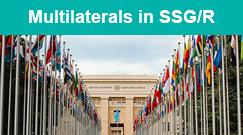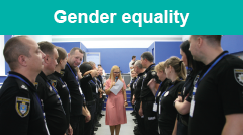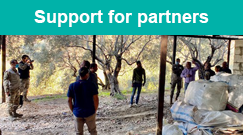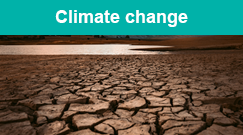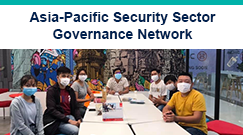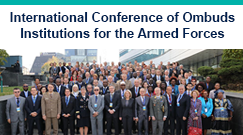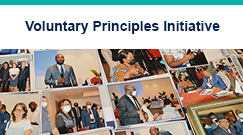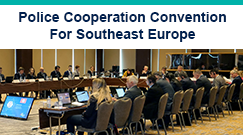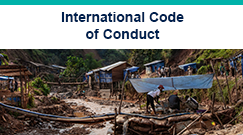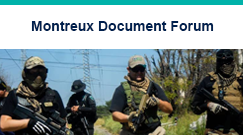At a glance
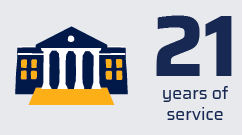
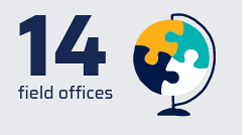
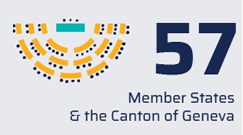
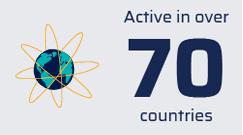
We created and distributed 200+ cutting-edge knowledge products in 17 languages
2021 highlights
Reaffirm the value of democratic governance in addressing current and emerging security challenges
It is now well-established that a lack of democratic civilian control of security institutions undercuts development and fosters political violence, especially in fragile and conflict-affected states. Improving democratic governance over the security sector requires a locally-owned, multifaceted approach. DCAF has been working with national and international partners in multi-year projects to lay the foundations for reform and good governance.
“In 2011, Tunisia joined DCAF to reform its security sector. Over the years you have built the amount of trust which enables us today to tackle this subject, turning a taboo topic shrouded by mystery and distrust into one of cooperation and trust.” |
Enhance engagement in fragile and conflict-affected environments
While investments in SSG/R are required across all contexts, the needs are particularly acute in fragile and conflict-affected states. By engaging in fragile states with a focus on building inclusive, accountable, and effective security institutions, we contribute to the broader global goals of peace and sustainable development. We prioritize multi-stakeholder approaches that include local communities, the private sector, and other non-state actors, as well as informal security-related arrangements and practices.
“DCAF’s initiative has been successful in efforts to promote and integrate female participation in the Yemen peace process while also facilitating Yemeni-Yemeni dialogue on crucial security-related issues such as the development of ceasefire mechanisms, integration and accountability." |
Strengthen the contribution of security sector governance and reform to international policy and practice
Effective security sector governance is key to achieving the objectives of powerful international policy agendas such as the Agenda 2030 for Sustainable Development, the UN’s Sustaining Peace Agenda, the Women, Peace and Security Agenda, and the Business, Security and Human Rights Agenda. As a pioneer in the field of SSG/R, DCAF has made significant contributions to the development of the concept of SSG/R in international discourse and has earned a reputation as an incubator of innovative research.
“Protecting the planet and preventing conflict go hand in hand. Devising policy options to better anchor our work in SSG/R into multi-disciplinary, nimble and innovative responses to global challenges is one of my utmost priorities. The recommendations set forth in this policy brief provide such avenues, most notably by placing our shared principles at the centre of collective action to address climate change-related security risks." |
Promote international standards and good practices
Thank you
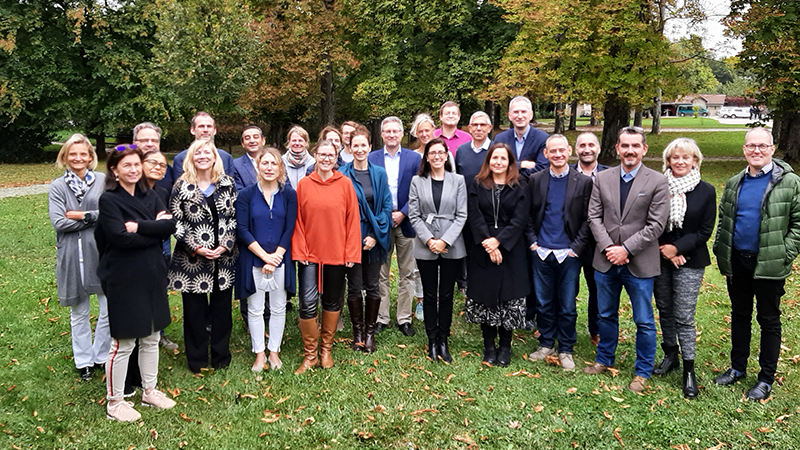 |
The DCAF leadership team and staff are grateful for the ongoing support of our core funders and other generous donors who make our work possible. Thank you to Switzerland, Sweden, Liechtenstein, and Albania, Austria, Bosnia and Herzegovina, Bulgaria, Canada, Denmark, the European Union, Finland, Folke Bernadotte Academy, France, Germany, Hungary, Ireland, Liechtenstein, Luxembourg, Macedonia, Moldova, Montenegro, NATO, the Netherlands, Norway, Open Society Foundations, Poland, Romania, Serbia, Slovakia, South Korea, Spain, Thomson Reuters Foundation, the United Kingdom, and the United Nations.
FOLLOW US ON SOCIAL MEDIA

